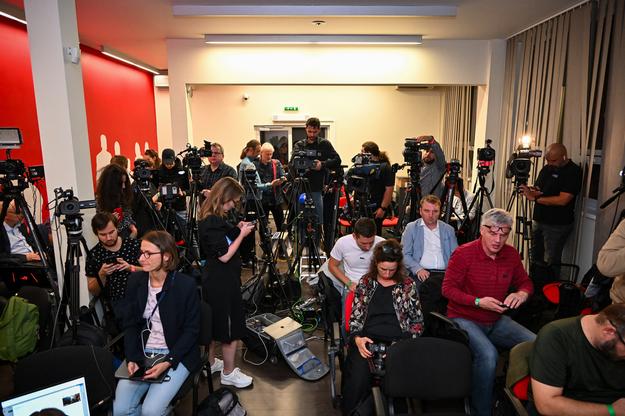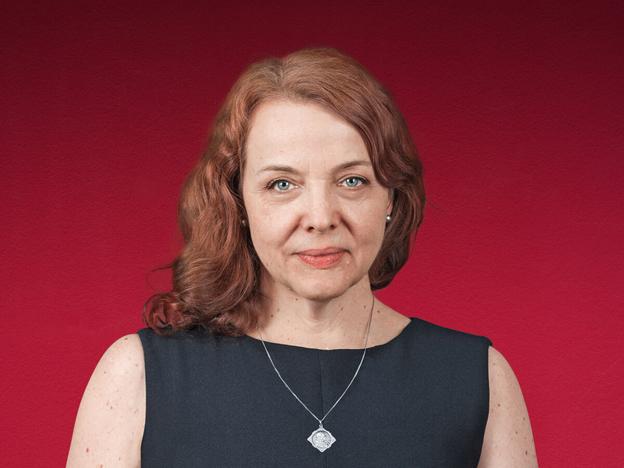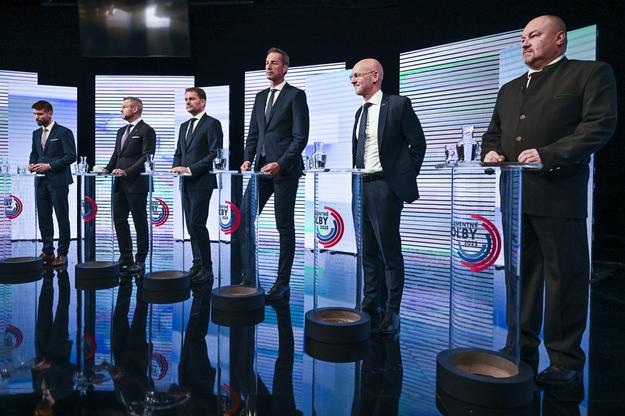Good evening. Here is the Sunday, October 1 edition of Today in Slovakia - a brief summary of the 2023 early parliamentary election in one place.
After taking first place, Smer awaits phone call from president
President Zuzana Čaputová has announced that she will ask Smer leader Robert Fico to form a government following his party’s first-place finish in Saturday’s parliamentary elections. Less than three weeks previously, Čaputová launched personal legal proceedings against Fico over lies that he continues to spread about her – among others, that she is a foreign agent.
Fico, who said on Sunday that Slovakia has bigger problems than the war in Ukraine and that he does not support any further military aid to his country’s eastern neighbour, resolved not to start post-election negotiations with other political parties before the president calls him. (However, it’s worth noting that he claims not to carry a phone.)
“We’ll sit at our HQ and wait for the president’s call,” he said on Sunday. On election night he avoided the media. A video from the small hours – it was recorded at about 4:00 – shows Fico and other Smer members celebrating Smer’s success from the balcony of their party's HQ, which is located in a residential area of Bratislava.
If he becomes premier for a fourth time Fico promises to not turn Slovakia’s foreign policy upside down. Yet he said he is ready to criticise the EU if necessary – and support cooperation among the Visegrad Group, which also includes Hungary and Poland, as well as Czechia – and that he will sack the current police chief and special prosecutor. The two men are in charge of ongoing investigations and prosecutions of people linked to Smer and its former governments, including Fico himself.
“If Smer is part of the next government, we’ll adopt a decree to restore controls on the border with Hungary,” he added, when asked about illegal migration. “It won’t be nice pictures at all. We’ll have to use force to tackle the migrant issue.”
Quote: “It's morning. The sun’s up. It’s shining.” (Robert Fico after the election)
Exit polls: Two exit polls gave many people high and false hopes.
Slovaks abroad: See who Slovak voters abroad chose, and why the result for this group came late.
Post-election scenarios: Martin Vančo lists several possible coalition government scenarios, including one that excludes Smer.
REACTIONS FROM THE WORLD
Russia: Russian political scientist Vadim Trukhachev wrote that the time had come for Russia to "deal with" Slovakia. See how Russian media reported on the Slovak election.
Rest of the world:The foreign media’s attention was largely focused on one thing when it came to the Slovak election: Slovakia’s position on the war in Ukraine, and its likely attitude to Russia post-election.
OPINIONS
Beata Balogová: Hard work begins now
Beata Balogová, editor-in-chief of the Sme daily and former editor-in-chief of The Slovak Spectator, writes that Fico won because he managed to master the skill of spreading fear.
MORE COMMENTARIES:
Former editor-in-chief of The Slovak Spectator Michaela Terenzani: “The world is looking at Slovakia and wondering how the new government will behave towards Ukraine, but this morning in Bratislava people are asking themselves how Fico and Pellegrini will behave towards Slovakia,” she writes.
Jakub Filo of the Sme daily: Filo sums up the first findings of the 2023 election, including the biggest surprises and who will decide on Fico’s future.
2023 ELECTION IN NUMBERS
Six political parties and one coalition won seats in the 150-seat parliament. You can find more detailed data on the election results here.
16.5 percent of votes cast were "wasted" by being cast for parties that failed to clear the threshold to win seats in parliament.
The first-place party, Smer, received 681,017 valid votes, while second-place Progresívne Slovensko received 533,136 votes.
Only 22 percent of seats in the new parliament will be occupied by women (33 out of 150 MPs).
It took 10 hours 38 minutes to count all the votes in the election, 67 minutes less than in 2020. Updates slowed between 00:30 and 2:30, prompting criticism from the media and most politicians, due to too many electoral commissions submitting their results electronically at the same time. The control mechanisms in place were unable to cope with the flow of data.
More than 3 million Slovaks out of of almost 4.4 million registered voters cast their ballots.
The number of votes counted did not reach 100 percent because votes in one electoral district in Prešov Region were declared invalid and could not be counted. Therefore, the final count stands at 99.98 percent.
Thank you for subscribing and reading. It means a lot to us.
P.S. If you have suggestions on how our news overview can be improved, you can reach us at editorial@spectator.sk.
Follow The Slovak Spectator on Facebook, Instagram (@slovakspectator) and Twitter (@slovakspectator).





